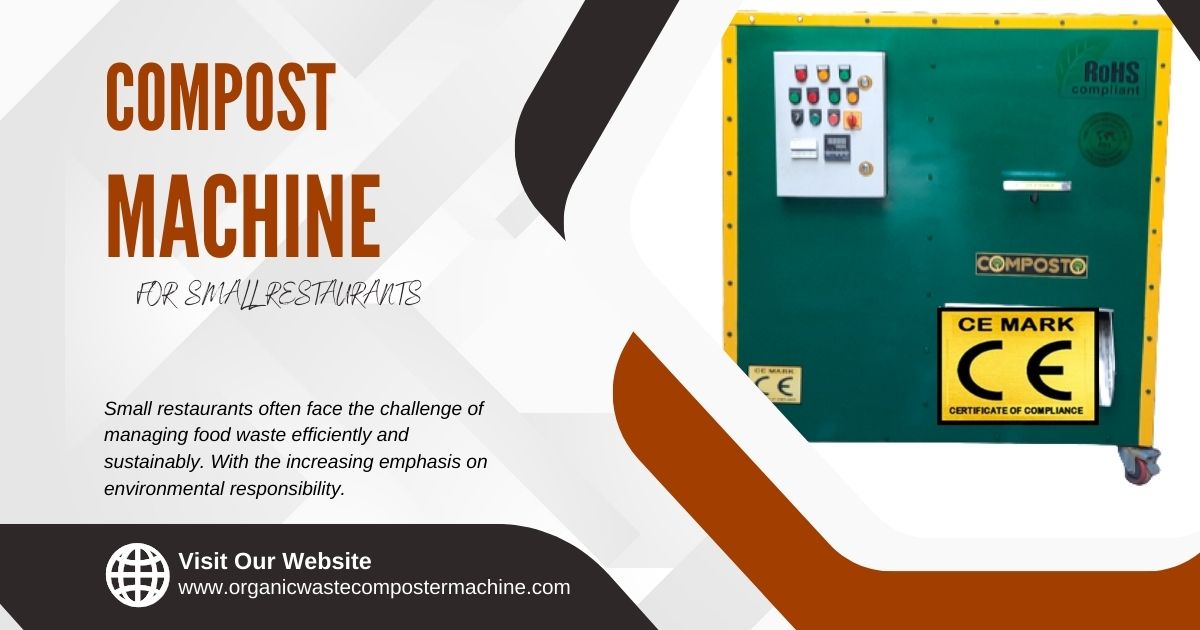How a Compost Machine Can Revolutionize Food Waste Management for Small Restaurants
Small restaurants often face the challenge of managing food waste efficiently and sustainably. With the increasing emphasis on environmental responsibility, finding innovative solutions to reduce food waste has become crucial. In this blog, we’ll explore how a compost machine can be a game-changer for small restaurants in their quest to minimize food waste and contribute to a greener planet.
Reducing Food Waste at the Source:
Small restaurants frequently generate food waste due to overproduction, spoilage, or customer leftovers. Compost machine allow them to process organic waste on-site, minimizing the amount of waste that ends up in landfills. This not only reduces disposal costs but also has a positive environmental impact.
Cost-Efficiency:
Compost machines are a cost-effective solution for small restaurants. Instead of paying to have their food waste hauled away, they can repurpose it on-site into valuable compost that can be used for gardening or donated to local farms.
Space Efficiency:
Small restaurants often have limited space. Compost machines come in various sizes to fit the available space, making them a practical choice for compact establishments. They can be placed in a kitchen or even outside, depending on the model.
Odor Control:
One of the concerns with food waste is the generation of unpleasant odors. Compost machines are designed to mitigate this issue by providing controlled and sealed composting environments, reducing the risk of odor pollution.
Educational Opportunity:
Implementing a compost machine can also be an educational opportunity for small restaurant staff and customers. It raises awareness about the importance of responsible waste management and can create a positive image for the restaurant in the community.
Sustainable Practices and Brand Image:
In today’s market, consumers are increasingly drawn to businesses that are committed to sustainable practices. Having a compost machine not only reduces food waste but also enhances a restaurant’s brand image as an environmentally conscious establishment.
Regulatory Compliance:
Some regions have regulations in place that require businesses to reduce food waste and implement sustainable waste management practices. Having a owc compost machine can help small restaurants stay in compliance with these regulations.
Building Community Connections:
Small restaurants can build connections within their local community by donating compost to nearby community gardens or urban farms. This not only fosters goodwill but also helps strengthen ties with customers and neighbors.
Conclusion:
Small restaurants can significantly benefit from the integration of compost machines into their operations. These machines offer an efficient, cost-effective, and environmentally responsible way to manage food waste. By taking steps to reduce food waste and embracing sustainability, small restaurants can not only improve their bottom line but also contribute to a more eco-friendly and socially responsible future.


